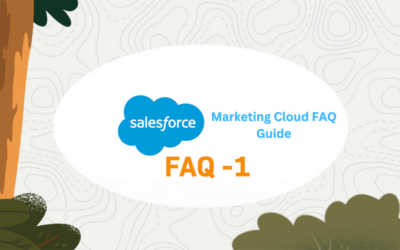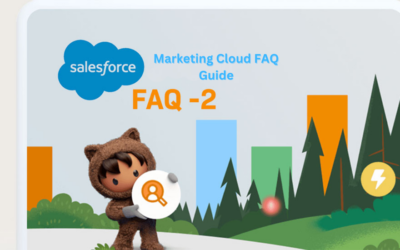In today’s rapidly evolving business landscape, harnessing the full potential of Salesforce Sales Cloud has become paramount for organizations striving to stay ahead in the competitive marketplace. The Salesforce Sales Cloud is more than just a customer relationship management (CRM) platform; it’s a dynamic ecosystem that empowers businesses to streamline their sales processes, engage customers effectively, and drive revenue growth. However, realizing these benefits necessitates the expertise of skilled professionals who can navigate the intricacies of Sales Cloud, making the role of a Salesforce Sales Cloud Consultant or Architect indispensable. In this comprehensive guide, we will delve into the critical aspects of evaluating and selecting the right candidate for this pivotal role. Through a series of meticulously crafted interview questions, we aim to equip hiring managers with the tools they need to identify individuals who possess not only the technical acumen but also the strategic insight to maximize the potential of Salesforce Sales Cloud.
In the following sections, we will explore a diverse array of interview questions that span fundamental concepts, technical proficiency, problem-solving skills, and soft skills. These questions are designed to help you assess the candidate’s knowledge, experience, and adaptability in the ever-evolving realm of Salesforce Sales Cloud. By the end of this guide, you will be well-prepared to identify the ideal Salesforce Sales Cloud Consultant or Architect who can guide your organization toward sales excellence and customer-centric success. If you need assistance with Salesforce CRM setup and optimization, companies like CRM Force can provide valuable expertise and support.
1- What is the importance of data quality in Salesforce? How do you maintain it?
Answer: Data integrity is crucial. They should discuss data validation rules, duplicate management, and data cleansing techniques.
2- What is a Salesforce Sandbox, and how can it be used effectively in a development and testing environment?
Answer: A Salesforce Sandbox is a copy of your Salesforce organization used for development and testing purposes. It helps prevent changes in your production environment from causing issues. It can be used for testing new features, configurations, and integrations before deploying them to production.
3- What is Salesforce Lightning and how does it differ from Salesforce Classic?
Answer: Salesforce Lightning is the modern user interface of Salesforce, designed for better user experience and productivity. It offers a more visually appealing and responsive interface compared to Salesforce Classic. Lightning also introduces new features like Lightning App Builder and Lightning Components.
4- What are the advantages of using Salesforce DX (Developer Experience) for development?
Answer: Salesforce DX provides a modern development environment with source-driven development, version control integration, and improved collaboration capabilities. It allows for better teamwork, more efficient development, and easier deployment of code and configurations.
5- How does Salesforce manage duplicate records, and what tools are available for deduplication?
Answer: Salesforce offers standard duplicate rules and matching rules to identify and merge duplicate records. Custom duplicate rules can also be created to suit specific needs. Data.com Clean, a paid service, can also help with deduplication.
6- What is the role of the Salesforce AppExchange, and how can it benefit organizations?
Answer: The Salesforce AppExchange is an online marketplace for third-party apps and extensions that can be integrated with Salesforce. It provides access to a wide range of solutions for extending Salesforce functionality and meeting specific business needs.
7- How can you enforce data validation in Salesforce?
Answer: Data validation in Salesforce can be enforced using validation rules. These rules specify criteria that data must meet for it to be entered or updated in the system, ensuring data accuracy and consistency.
8- What is the purpose of the Data Loader in Salesforce, and how is it different from other data import tools?
Answer: The Data Loader is a Salesforce tool for bulk data import and export operations. It is more robust and feature-rich compared to other import tools like the Import Wizard. Data Loader supports larger data volumes and offers automation options.
9- How does the sharing model work in Salesforce, and what are OWD (Organization-Wide Defaults)?
Answer: The sharing model in Salesforce determines who can access records and what level of access they have. OWD settings control the default level of access for objects, and administrators can adjust sharing rules, role hierarchy, and manual sharing to grant additional access.
10- What is the purpose of Salesforce Communities, and how can they be customized for different use cases?
Answer: Salesforce Communities are online spaces where users can collaborate, access data, and interact with your organization. They can be customized with branded themes, layouts, and features to serve different purposes, such as customer self-service or partner collaboration.
11- How can you ensure data security in Salesforce when integrating with external systems or third-party applications?
Answer: To ensure data security, use authentication protocols like OAuth, implement secure APIs, and configure proper access controls and permissions in Salesforce. Regularly review and audit integrations for security vulnerabilities.
12- How does Salesforce handle bulk data loading, and what tools can be used for this purpose?
Answer: Salesforce handles bulk data loading through tools like Data Loader, Salesforce Import Wizard, and external integrations. Bulk APIs are also available for high-volume data operations.
13- What is the role of Salesforce Communities in enhancing customer engagement and support?
Answer: Salesforce Communities provide a platform for customers to interact, seek support, and access resources. They enable self-service, knowledge sharing, and collaboration among customers and your organization.
14- What is the Salesforce Security Token, and why is it necessary for integration and authentication?
Answer: The Salesforce Security Token is a dynamically generated key that adds an extra layer of security to your Salesforce login. It is necessary for API integration and authenticating from external applications.
15- What is a Salesforce Flow, and how can it be used to automate processes?
Answer: A Salesforce Flow is a tool for automating business processes, collecting data, and guiding users through a series of steps. It can be used to streamline complex processes and replace multiple workflow rules or processes with a single flow.
16- What is the purpose of Apex classes in Salesforce, and how can they be used to extend functionality?
Answer: Apex classes are used to write custom code in Salesforce. They can extend the platform’s functionality by performing complex calculations, integrating with external systems, and creating custom logic that can’t be achieved with declarative tools.
17- What is the difference between a Role and a Profile in Salesforce’s security model?
Answer: Roles define a user’s position in the role hierarchy, determining the level of data access they have. Profiles, on the other hand, control what a user can do within Salesforce, specifying permissions like read, write, and delete.
18- What is the Salesforce App Builder, and how can it be used to create custom applications?
Answer: The Salesforce App Builder is a visual tool that allows users to create custom applications by dragging and dropping components onto a canvas. It’s used to design user interfaces and functionality tailored to specific business needs.
19- What is the significance of a Salesforce Audit Trail, and how can it be used for tracking changes?
Answer: The Salesforce Audit Trail allows administrators to view a history of setup changes made within the organization. It’s useful for tracking who made changes, when they were made, and what specific changes were implemented.
20- What is the significance of the “Lead Source” field in Salesforce, and how can it be used to track lead generation efforts?
Answer: The “Lead Source” field in Salesforce is used to capture the channel or method through which a lead was generated. It helps in tracking which marketing efforts or campaigns are most effective in generating leads.
Conclusion
In a landscape where businesses are continuously evolving and customer expectations are ever-increasing, Salesforce Sales Cloud stands as a beacon of innovation and efficiency. However, the true power of this CRM platform can only be harnessed through the expertise of a Salesforce Sales Cloud Consultant or Architect. These professionals are the driving force behind successful implementations, optimizations, and transformations, ensuring that organizations can adapt and thrive in the dynamic world of sales and customer relationship management.
As you embark on the journey to find the perfect Salesforce Sales Cloud Consultant or Architect for your organization, remember that their role extends far beyond the technical realm. It’s about finding an individual who not only understands the intricacies of the platform but also possesses the vision to align it with your unique business objectives. With this comprehensive set of interview questions, you are now equipped to identify that exceptional candidate who will not only navigate the complexities of Salesforce Sales Cloud but also guide your organization toward sales excellence and customer-centric success in an ever-evolving market. To learn more about how CRM Force can assist you in recruiting top CRM talent and optimizing your CRM strategies for successful drip campaigns, contact us today. Together, let’s maximize your customer engagement Contact Us today.





